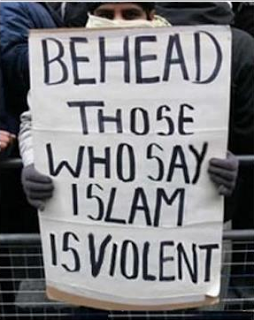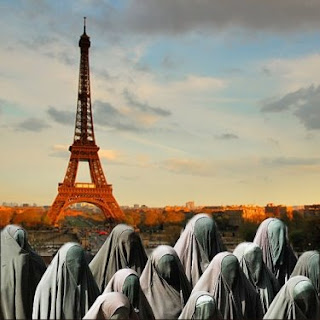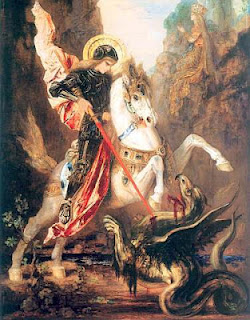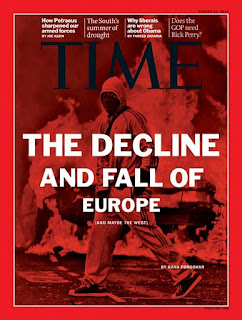The Real History of the Crusades
By Thomas F. Madden
April 1, 2002
With the possible exception of Umberto Eco, medieval
scholars are not used to getting much media attention.
We tend to be a quiet lot (except during the annual
bacchanalia we call the International Congress on
Medieval Studies in Kalamazoo, Michigan, of all
places), poring over musty chronicles and writing dull
yet meticulous studies that few will read. Imagine,
then, my surprise when within days of the September 11
attacks, the Middle Ages suddenly became relevant.
As a Crusade historian, I found the tranquil solitude
of the ivory tower shattered by journalists, editors,
and talk-show hosts on tight deadlines eager to get
the real scoop. What were the Crusades?, they asked.
When were they? Just how insensitive was President
George W. Bush for using the word "crusade" in his
remarks? With a few of my callers I had the distinct
impression that they already knew the answers to their
questions, or at least thought they did. What they
really wanted was an expert to say it all back to
them. For example, I was frequently asked to comment
on the fact that the Islamic world has a just
grievance against the West. Doesn't the present
violence, they persisted, have its roots in the
Crusades' brutal and unprovoked attacks against a
sophisticated and tolerant Muslim world? In other
words, aren't the Crusades really to blame?
Osama bin Laden certainly thinks so. In his various
video performances, he never fails to describe the
American war against terrorism as a new Crusade
against Islam. Ex-president Bill Clinton has also
fingered the Crusades as the root cause of the present
conflict. In a speech at Georgetown University, he
recounted (and embellished) a massacre of Jews after
the Crusader conquest of Jerusalem in 1099 and
informed his audience that the episode was still
bitterly remembered in the Middle East. (Why Islamist
terrorists should be upset about the killing of Jews
was not explained.) Clinton took a beating on the
nation's editorial pages for wanting so much to blame
the United States that he was willing to reach back to
the Middle Ages. Yet no one disputed the
ex-president's fundamental premise.
Well, almost no one. Many historians had been trying
to set the record straight on the Crusades long before
Clinton discovered them. They are not revisionists,
like the American historians who manufactured the
Enola Gay exhibit, but mainstream scholars offering
the fruit of several decades of very careful, very
serious scholarship. For them, this is a "teaching
moment," an opportunity to explain the Crusades while
people are actually listening. It won't last long, so
here goes.
Misconceptions about the Crusades are all too common.
The Crusades are generally portrayed as a series of
holy wars against Islam led by power-mad popes and
fought by religious fanatics. They are supposed to
have been the epitome of self-righteousness and
intolerance, a black stain on the history of the
Catholic Church in particular and Western civilization
in general. A breed of proto-imperialists, the
Crusaders introduced Western aggression to the
peaceful Middle East and then deformed the enlightened
Muslim culture, leaving it in ruins. For variations on
this theme, one need not look far. See, for example,
Steven Runciman's famous three-volume epic, History of
the Crusades, or the BBC/A&E documentary, The
Crusades, hosted by Terry Jones. Both are terrible
history yet wonderfully entertaining.
So what is the truth about the Crusades? Scholars are
still working some of that out. But much can already
be said with certainty. For starters, the Crusades to
the East were in every way defensive wars. They were a
direct response to Muslim aggression—an attempt to
turn back or defend against Muslim conquests of
Christian lands.
Christians in the eleventh century were not paranoid
fanatics. Muslims really were gunning for them. While
Muslims can be peaceful, Islam was born in war and
grew the same way. From the time of Mohammed, the
means of Muslim expansion was always the sword. Muslim
thought divides the world into two spheres, the Abode
of Islam and the Abode of War. Christianity—and for
that matter any other non-Muslim religion—has no
abode. Christians and Jews can be tolerated within a
Muslim state under Muslim rule. But, in traditional
Islam, Christian and Jewish states must be destroyed
and their lands conquered. When Mohammed was waging
war against Mecca in the seventh century, Christianity
was the dominant religion of power and wealth. As the
faith of the Roman Empire, it spanned the entire
Mediterranean, including the Middle East, where it was
born. The Christian world, therefore, was a prime
target for the earliest caliphs, and it would remain
so for Muslim leaders for the next thousand years.
With enormous energy, the warriors of Islam struck out
against the Christians shortly after Mohammed's death.
They were extremely successful. Palestine, Syria, and
Egypt—once the most heavily Christian areas in the
world—quickly succumbed. By the eighth century, Muslim
armies had conquered all of Christian North Africa and
Spain. In the eleventh century, the Seljuk Turks
conquered Asia Minor (modern Turkey), which had been
Christian since the time of St. Paul. The old Roman
Empire, known to modern historians as the Byzantine
Empire, was reduced to little more than Greece. In
desperation, the emperor in Constantinople sent word
to the Christians of western Europe asking them to aid
their brothers and sisters in the East.
That is what gave birth to the Crusades. They were not
the brainchild of an ambitious pope or rapacious
knights but a response to more than four centuries of
conquests in which Muslims had already captured
two-thirds of the old Christian world. At some point,
Christianity as a faith and a culture had to defend
itself or be subsumed by Islam. The Crusades were that
defense.
Pope Urban II called upon the knights of Christendom
to push back the conquests of Islam at the Council of
Clermont in 1095. The response was tremendous. Many
thousands of warriors took the vow of the cross and
prepared for war. Why did they do it? The answer to
that question has been badly misunderstood. In the
wake of the Enlightenment, it was usually asserted
that Crusaders were merely lacklands and
ne'er-do-wells who took advantage of an opportunity to
rob and pillage in a faraway land. The Crusaders'
expressed sentiments of piety, self-sacrifice, and
love for God were obviously not to be taken seriously.
They were only a front for darker designs.
During the past two decades, computer-assisted charter
studies have demolished that contrivance. Scholars
have discovered that crusading knights were generally
wealthy men with plenty of their own land in Europe.
Nevertheless, they willingly gave up everything to
undertake the holy mission. Crusading was not cheap.
Even wealthy lords could easily impoverish themselves
and their families by joining a Crusade. They did so
not because they expected material wealth (which many
of them had already) but because they hoped to store
up treasure where rust and moth could not corrupt.
They were keenly aware of their sinfulness and eager
to undertake the hardships of the Crusade as a
penitential act of charity and love. Europe is
littered with thousands of medieval charters attesting
to these sentiments, charters in which these men still
speak to us today if we will listen. Of course, they
were not opposed to capturing booty if it could be
had. But the truth is that the Crusades were
notoriously bad for plunder. A few people got rich,
but the vast majority returned with nothing.
* * *
Urban II gave the Crusaders two goals, both of which
would remain central to the eastern Crusades for
centuries. The first was to rescue the Christians of
the East. As his successor, Pope Innocent III, later
wrote:
How does a man love according to divine precept his
neighbor as himself when, knowing that his Christian
brothers in faith and in name are held by the
perfidious Muslims in strict confinement and weighed
down by the yoke of heaviest servitude, he does not
devote himself to the task of freeing them? ...Is it
by chance that you do not know that many thousands of
Christians are bound in slavery and imprisoned by the
Muslims, tortured with innumerable torments?
"Crusading," Professor Jonathan Riley-Smith has
rightly argued, was understood as an "an act of
love"—in this case, the love of one's neighbor. The
Crusade was seen as an errand of mercy to right a
terrible wrong. As Pope Innocent III wrote to the
Knights Templar, "You carry out in deeds the words of
the Gospel, 'Greater love than this hath no man, that
he lay down his life for his friends.'"
The second goal was the liberation of Jerusalem and
the other places made holy by the life of Christ. The
word crusade is modern. Medieval Crusaders saw
themselves as pilgrims, performing acts of
righteousness on their way to the Holy Sepulcher. The
Crusade indulgence they received was canonically
related to the pilgrimage indulgence. This goal was
frequently described in feudal terms. When calling the
Fifth Crusade in 1215, Innocent III wrote:
Consider most dear sons, consider carefully that if
any temporal king was thrown out of his domain and
perhaps captured, would he not, when he was restored
to his pristine liberty and the time had come for
dispensing justice look on his vassals as unfaithful
and traitors...unless they had committed not only
their property but also their persons to the task of
freeing him? ...And similarly will not Jesus Christ,
the king of kings and lord of lords, whose servant you
cannot deny being, who joined your soul to your body,
who redeemed you with the Precious Blood...condemn you
for the vice of ingratitude and the crime of
infidelity if you neglect to help Him?
The reconquest of Jerusalem, therefore, was not
colonialism but an act of restoration and an open
declaration of one's love of God. Medieval men knew,
of course, that God had the power to restore Jerusalem
Himself—indeed, He had the power to restore the whole
world to His rule. Yet as St. Bernard of Clairvaux
preached, His refusal to do so was a blessing to His
people:
Again I say, consider the Almighty's goodness and pay
heed to His plans of mercy. He puts Himself under
obligation to you, or rather feigns to do so, that He
can help you to satisfy your obligations toward
Himself.... I call blessed the generation that can
seize an opportunity of such rich indulgence as this.
It is often assumed that the central goal of the
Crusades was forced conversion of the Muslim world.
Nothing could be further from the truth. From the
perspective of medieval Christians, Muslims were the
enemies of Christ and His Church. It was the
Crusaders' task to defeat and defend against them.
That was all. Muslims who lived in Crusader-won
territories were generally allowed to retain their
property and livelihood, and always their religion.
Indeed, throughout the history of the Crusader Kingdom
of Jerusalem, Muslim inhabitants far outnumbered the
Catholics. It was not until the 13th century that the
Franciscans began conversion efforts among Muslims.
But these were mostly unsuccessful and finally
abandoned. In any case, such efforts were by peaceful
persuasion, not the threat of violence.
The Crusades were wars, so it would be a mistake to
characterize them as nothing but piety and good
intentions. Like all warfare, the violence was brutal
(although not as brutal as modern wars). There were
mishaps, blunders, and crimes. These are usually
well-remembered today. During the early days of the
First Crusade in 1095, a ragtag band of Crusaders led
by Count Emicho of Leiningen made its way down the
Rhine, robbing and murdering all the Jews they could
find. Without success, the local bishops attempted to
stop the carnage. In the eyes of these warriors, the
Jews, like the Muslims, were the enemies of Christ.
Plundering and killing them, then, was no vice.
Indeed, they believed it was a righteous deed, since
the Jews' money could be used to fund the Crusade to
Jerusalem. But they were wrong, and the Church
strongly condemned the anti-Jewish attacks.
Fifty years later, when the Second Crusade was gearing
up, St. Bernard frequently preached that the Jews were
not to be persecuted:
Ask anyone who knows the Sacred Scriptures what he
finds foretold of the Jews in the Psalm. "Not for
their destruction do I pray," it says. The Jews are
for us the living words of Scripture, for they remind
us always of what our Lord suffered.... Under
Christian princes they endure a hard captivity, but
"they only wait for the time of their deliverance."
Nevertheless, a fellow Cistercian monk named Radulf
stirred up people against the Rhineland Jews, despite
numerous letters from Bernard demanding that he stop.
At last Bernard was forced to travel to Germany
himself, where he caught up with Radulf, sent him back
to his convent, and ended the massacres.
It is often said that the roots of the Holocaust can
be seen in these medieval pogroms. That may be. But if
so, those roots are far deeper and more widespread
than the Crusades. Jews perished during the Crusades,
but the purpose of the Crusades was not to kill Jews.
Quite the contrary: Popes, bishops, and preachers made
it clear that the Jews of Europe were to be left
unmolested. In a modern war, we call tragic deaths
like these "collateral damage." Even with smart
technologies, the United States has killed far more
innocents in our wars than the Crusaders ever could.
But no one would seriously argue that the purpose of
American wars is to kill women and children.
By any reckoning, the First Crusade was a long shot.
There was no leader, no chain of command, no supply
lines, no detailed strategy. It was simply thousands
of warriors marching deep into enemy territory,
committed to a common cause. Many of them died, either
in battle or through disease or starvation. It was a
rough campaign, one that seemed always on the brink of
disaster. Yet it was miraculously successful. By 1098,
the Crusaders had restored Nicaea and Antioch to
Christian rule. In July 1099, they conquered Jerusalem
and began to build a Christian state in Palestine. The
joy in Europe was unbridled. It seemed that the tide
of history, which had lifted the Muslims to such
heights, was now turning.
* * *
But it was not. When we think about the Middle Ages,
it is easy to view Europe in light of what it became
rather than what it was. The colossus of the medieval
world was Islam, not Christendom. The Crusades are
interesting largely because they were an attempt to
counter that trend. But in five centuries of
crusading, it was only the First Crusade that
significantly rolled back the military progress of
Islam. It was downhill from there.
When the Crusader County of Edessa fell to the Turks
and Kurds in 1144, there was an enormous groundswell
of support for a new Crusade in Europe. It was led by
two kings, Louis VII of France and Conrad III of
Germany, and preached by St. Bernard himself. It
failed miserably. Most of the Crusaders were killed
along the way. Those who made it to Jerusalem only
made things worse by attacking Muslim Damascus, which
formerly had been a strong ally of the Christians. In
the wake of such a disaster, Christians across Europe
were forced to accept not only the continued growth of
Muslim power but the certainty that God was punishing
the West for its sins. Lay piety movements sprouted up
throughout Europe, all rooted in the desire to purify
Christian society so that it might be worthy of
victory in the East.
Crusading in the late twelfth century, therefore,
became a total war effort. Every person, no matter how
weak or poor, was called to help. Warriors were asked
to sacrifice their wealth and, if need be, their lives
for the defense of the Christian East. On the home
front, all Christians were called to support the
Crusades through prayer, fasting, and alms. Yet still
the Muslims grew in strength. Saladin, the great
unifier, had forged the Muslim Near East into a single
entity, all the while preaching jihad against the
Christians. In 1187 at the Battle of Hattin, his
forces wiped out the combined armies of the Christian
Kingdom of Jerusalem and captured the precious relic
of the True Cross. Defenseless, the Christian cities
began surrendering one by one, culminating in the
surrender of Jerusalem on October 2. Only a tiny
handful of ports held out.
The response was the Third Crusade. It was led by
Emperor Frederick I Barbarossa of the German Empire,
King Philip II Augustus of France, and King Richard I
Lionheart of England. By any measure it was a grand
affair, although not quite as grand as the Christians
had hoped. The aged Frederick drowned while crossing a
river on horseback, so his army returned home before
reaching the Holy Land. Philip and Richard came by
boat, but their incessant bickering only added to an
already divisive situation on the ground in Palestine.
After recapturing Acre, the king of France went home,
where he busied himself carving up Richard's French
holdings. The Crusade, therefore, fell into Richard's
lap. A skilled warrior, gifted leader, and superb
tactician, Richard led the Christian forces to victory
after victory, eventually reconquering the entire
coast. But Jerusalem was not on the coast, and after
two abortive attempts to secure supply lines to the
Holy City, Richard at last gave up. Promising to
return one day, he struck a truce with Saladin that
ensured peace in the region and free access to
Jerusalem for unarmed pilgrims. But it was a bitter
pill to swallow. The desire to restore Jerusalem to
Christian rule and regain the True Cross remained
intense throughout Europe.
The Crusades of the 13th century were larger, better
funded, and better organized. But they too failed. The
Fourth Crusade (1201-1204) ran aground when it was
seduced into a web of Byzantine politics, which the
Westerners never fully understood. They had made a
detour to Constantinople to support an imperial
claimant who promised great rewards and support for
the Holy Land. Yet once he was on the throne of the
Caesars, their benefactor found that he could not pay
what he had promised. Thus betrayed by their Greek
friends, in 1204 the Crusaders attacked, captured, and
brutally sacked Constantinople, the greatest Christian
city in the world. Pope Innocent III, who had
previously excommunicated the entire Crusade, strongly
denounced the Crusaders. But there was little else he
could do. The tragic events of 1204 closed an iron
door between Roman Catholic and Greek Orthodox, a door
that even today Pope John Paul II has been unable to
reopen. It is a terrible irony that the Crusades,
which were a direct result of the Catholic desire to
rescue the Orthodox people, drove the two further—and
perhaps irrevocably—apart.
The remainder of the 13th century's Crusades did
little better. The Fifth Crusade (1217-1221) managed
briefly to capture Damietta in Egypt, but the Muslims
eventually defeated the army and reoccupied the city.
St. Louis IX of France led two Crusades in his life.
The first also captured Damietta, but Louis was
quickly outwitted by the Egyptians and forced to
abandon the city. Although Louis was in the Holy Land
for several years, spending freely on defensive works,
he never achieved his fondest wish: to free Jerusalem.
He was a much older man in 1270 when he led another
Crusade to Tunis, where he died of a disease that
ravaged the camp. After St. Louis's death, the
ruthless Muslim leaders, Baybars and Kalavun, waged a
brutal jihad against the Christians in Palestine. By
1291, the Muslim forces had succeeded in killing or
ejecting the last of the Crusaders, thus erasing the
Crusader kingdom from the map. Despite numerous
attempts and many more plans, Christian forces were
never again able to gain a foothold in the region
until the 19th century.
* * *
One might think that three centuries of Christian
defeats would have soured Europeans on the idea of
Crusade. Not at all. In one sense, they had little
alternative. Muslim kingdoms were becoming more, not
less, powerful in the 14th, 15th, and 16th centuries.
The Ottoman Turks conquered not only their fellow
Muslims, thus further unifying Islam, but also
continued to press westward, capturing Constantinople
and plunging deep into Europe itself. By the 15th
century, the Crusades were no longer errands of mercy
for a distant people but desperate attempts of one of
the last remnants of Christendom to survive. Europeans
began to ponder the real possibility that Islam would
finally achieve its aim of conquering the entire
Christian world. One of the great best-sellers of the
time, Sebastian Brant's The Ship of Fools, gave voice
to this sentiment in a chapter titled "Of the Decline
of the Faith":
Our faith was strong in th' Orient,
It ruled in all of Asia,
In Moorish lands and Africa.
But now for us these lands are gone
'Twould even grieve the hardest stone....
Four sisters of our Church you find,
They're of the patriarchic kind:
Constantinople, Alexandria,
Jerusalem, Antiochia.
But they've been forfeited and sacked
And soon the head will be attacked.
Of course, that is not what happened. But it very
nearly did. In 1480, Sultan Mehmed II captured Otranto
as a beachhead for his invasion of Italy. Rome was
evacuated. Yet the sultan died shortly thereafter, and
his plan died with him. In 1529, Suleiman the
Magnificent laid siege to Vienna. If not for a run of
freak rainstorms that delayed his progress and forced
him to leave behind much of his artillery, it is
virtually certain that the Turks would have taken the
city. Germany, then, would have been at their mercy.
Yet, even while these close shaves were taking place,
something else was brewing in Europe—something
unprecedented in human history. The Renaissance, born
from a strange mixture of Roman values, medieval
piety, and a unique respect for commerce and
entrepreneurialism, had led to other movements like
humanism, the Scientific Revolution, and the Age of
Exploration. Even while fighting for its life, Europe
was preparing to expand on a global scale. The
Protestant Reformation, which rejected the papacy and
the doctrine of indulgence, made Crusades unthinkable
for many Europeans, thus leaving the fighting to the
Catholics. In 1571, a Holy League, which was itself a
Crusade, defeated the Ottoman fleet at Lepanto. Yet
military victories like that remained rare. The Muslim
threat was neutralized economically. As Europe grew in
wealth and power, the once awesome and sophisticated
Turks began to seem backward and pathetic—no longer
worth a Crusade. The "Sick Man of Europe" limped along
until the 20th century, when he finally expired,
leaving behind the present mess of the modern Middle
East.
From the safe distance of many centuries, it is easy
enough to scowl in disgust at the Crusades. Religion,
after all, is nothing to fight wars over. But we
should be mindful that our medieval ancestors would
have been equally disgusted by our infinitely more
destructive wars fought in the name of political
ideologies. And yet, both the medieval and the modern
soldier fight ultimately for their own world and all
that makes it up. Both are willing to suffer enormous
sacrifice, provided that it is in the service of
something they hold dear, something greater than
themselves. Whether we admire the Crusaders or not, it
is a fact that the world we know today would not exist
without their efforts. The ancient faith of
Christianity, with its respect for women and antipathy
toward slavery, not only survived but flourished.
Without the Crusades, it might well have followed
Zoroastrianism, another of Islam's rivals, into
extinction.
Thomas F. Madden is associate professor and chair of
the Department of History at Saint Louis University.
He is the author of numerous works, including A
Concise History of the Crusades, and co-author, with
Donald Queller, of The Fourth Crusade: The Conquest of Constantinople.






